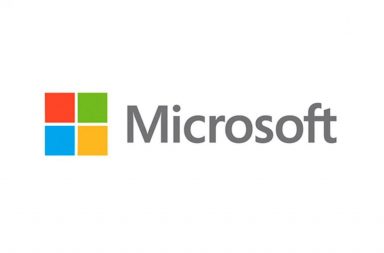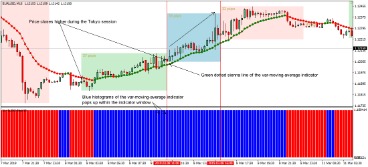Content

Some brokers require a minimum deposit amount that you have to upload before you can start trading, so keep this in mind when making the transfer. This can be as low as a few dollars, and in some extreme cases, as high as $2,000. Stacy Rapacon is a freelance writer-editor, who has specialized in personal-finance topics, including investing, saving for retirement, credit, family finances, and financial education, since 2007. You can find her on Twitter at @srapacon and connect with her on LinkedIn.
If you’ve never invested in the stock market, don’t fret – it’s actually pretty simple once you get the hang of it. Banking services and bank accounts are offered by Jiko Bank, a division of Mid-Central National Bank, Member FDIC. Via a feature called “slices,” Public users can buy into pieces of the companies they believe in instead of footing the bill for a full share.
You’ll need to get set up with a broker to buy stock, but that takes only minutes. The broker lets you purchase and sell stock, holds the shares for you in an account and collects any dividends that are paid. You’ll need to provide basic financial information to open the account and can connect your bank account to the brokerage to transfer money. If you’re purchasing stocks, it’s a good rule of thumb to avoid investing money you’ll need in at least five years. That’s due to stock market volatility — it’s possible the value of the shares you buy will go down before going up.
Buy & sell options
You’ll also need your bank account information if you want to fund your new brokerage account using your checking or savings account. Or, you can choose to establish an individual retirement account (IRA), which comes with some pretty nice tax advantages. When you select the stock ticker that you would like to trade, you’ll be met with a price quote, a set of information about the stock’s price and activity. This will show you the last price at which the shares traded, as well as a bid and an offer. The bid is the highest price at which somebody in the market will buy a share (and thus is the best price at which you can sell to them). The offer, or ask, is the lowest price at which somebody in the market is willing to sell (and thus, it’s the best price at which you can buy from them).

An account number alone is not enough information to request changes or transact on a Computershare Investor account. Investors do not need an account with Computershare in order to be registered via DRS. Our Insights section has everything from investing basics to advanced strategies. Stocks are available for companies in a wide variety of industries, so you can tap into your knowledge of specific businesses. Never stop learning when it comes to protecting your hard-earned money and investing for your future. Knowing the answers to these questions will help determine what kinds of stocks are the best fit for you, or whether stocks are for you at all.
You’re our first priority.Every time.
You don’t have to work directly with an actual broker to buy stocks online—online brokerages can do that for you. While you don’t need a hired broker, you do need a brokerage, which is simply the firm that administers the buying and selling of stocks. You can also find companies that offer a direct stock purchase plan, although it’s less common. Short selling is a way to profit from a price drop in a company’s stock and, like buying on margin, tends to be a short-term trading strategy. To sell a stock short, you borrow shares from your brokerage firm and sell them at their current market price.
But, bear in mind that leverage can increase both your profits and your losses as they’ll be based on the full exposure of the trade, not just the margin requirement needed to open it. This means that losses as well as profits could far exceed your margin. You can speculate on the price of shares rising or falling with derivatives like CFDs. CFDs have their pros and cons, which we explain later in this guide. You might also hear about micro-cap companies, which are even smaller than other small-cap companies.
A mutual fund is a basket of hundreds of stocks within a single fund that provides broader market exposure compared to a single stock, and removes the intensive research required to analyze individual stocks. Market orders are generally the most common choice, and are suitable for long-term investors whose main goal is ensuring the trade is fully executed rather than assessing small price differences. Limit orders offer more control over the price of your trade, and are typically favored by short-term investors looking to time their trades or buy shares with highly volatile prices. Growth companies in particular often receive intense media and investor attention, and their stock prices may be higher than their current profits seem to warrant.
With paper trading, you can learn how to buy and sell stock using play money. Or if you’re ready to put real money down, you can start small — really small. You could consider purchasing just a single share to get a feel for what it’s like to own individual stocks and whether you have the fortitude to ride through the rough patches with minimal sleep loss. You can add to your position over time as you master the shareholder swagger.
Since you are trading with your savings, it is very important to pay attention to safety. Most of the brokers we recommend have solid investor protection schemes in place for a majority of their clients. Investor protection means that up to a certain limit, you get your money back if the broker goes into bankruptcy or commits fraud. When searching for stocks to buy, you can get inspiration from others’ ideas or you can do your own research.
$0 commissions
ETFs allow you to invest in a basket of hundreds or even thousands of companies at the price of one share. Lower your risk and diversify your exposure to stocks with our Vanguard ETFs®. Deciding the number of shares to buy will depend some on how much money you have to invest. Here are four steps to buying a company’s stock, plus what to consider before selling your shares. If you are young and saving for a long-term goal such as retirement, you may want to hold more stocks than bonds.

Investors buy shares outright in the hope that they will increase in price and can be sold at a later date for a profit. They uphold the traditional mantra of buying low and selling high – known as going long. Investors will take positions over a longer period of time, attempting to profit from share price changes as well as dividend payments. Investing in stocks isn’t a set-it-and-forget-it type of process. As you gain confidence with the process, you’ll be able to make more informed decisions about allocating more (or less) toward your original investment or deciding on additional stocks you want to buy.
Mercedes Barba is a seasoned editorial leader and video producer, with an Emmy nomination to her credit. Presently, she is the senior investing editor at Bankrate, leading the team’s coverage of all things investments and retirement. Prior to this, Mercedes served as a senior editor at NextAdvisor. Even if a stock seems like a great deal at the moment, stick to what you know and hold out for the right price.
Are stocks and shares the same thing?
When you use a stockbroker, whether a human being or an online platform, you can choose the investment that you wish to buy or sell and how the trade should be handled. If you have a little bit of money and a brokerage account, you can buy a piece of a publicly traded company. A stock is an ownership share in a business, and literally thousands of them trade on a stock exchange, allowing anyone – even beginners – to become a part owner in the company. A limit order gives you more control over the price at which your trade is executed. On the selling side, a limit order tells your broker to part with the shares once the bid rises to the level you set. Don’t be surprised if the price you pay — or receive, if you’re selling — is not the exact price you were quoted just seconds before.

Creating a brokerage account is the easiest part once you’ve selected the right brokerage for you. You’ll learn where to buy, how to buy stocks, and when to sell stocks online in six simple steps. Whether a company on your watchlist just hit its buy price or you just want to be prepared when that time comes, knowing how https://g-markets.net/helpful-articles/how-to-spot-fake-double-tops/ to evaluate stocks before you purchase is crucial to your personal finance. Now that I know you’re really ready, I’ll teach you how to actually buy the stocks on your watchlist at a fair share price. If you’ve followed along and done your research, chances are you have at least a couple of companies on your watch list.
Alternatively, if you want the order to remain in force for longer than a day, then you can designate it good ’til canceled (GTC). Other conditions can also be placed on an order, such as a stop-loss. Beginners interested in buying a stock should understand that it’s simple to place a trade.
What to beware of before selling your shares
A stock that has a beta above 1.0 means it is more volatile than the overall market. Generally, growth stocks tend to be more volatile than value stocks. This is a risky strategy, however, because you must still re-buy the shares and return them to your firm. If you must re-buy the shares at a price that’s the same as or higher than the price at which you sold the borrowed shares, after accounting for transaction costs and interest, you’ll lose money. And generally, the longer you wait to purchase shares, the more you will be paying in interest to your brokerage firm.
They access their investments and account balances and other information through their broker/intermediary’s online platform. All beneficial shares are generally held in electronic (book entry) form through the Depository Trust Company (DTC). In certain circumstances, shares may be ‘lent’ by the brokerage firm to cover other trading activity, such as short sells by others. The company has very little visibility of beneficial investors whose shares are held in “street name”, and communications from the company are routed through the broker, usually by an agent acting for the broker. Registered shareholders, also known as “shareholders of record,” are people or entities that hold shares directly in their own name on the company register.
- There are thousands of different companies offering shares of stock on the market.
- We hope your first stock purchase marks the beginning of a lifelong journey of successful investing.
- However, establishing margin privilege can confer some other benefits.
- These let you buy a portion of a single share that may otherwise be out of your budget.
Many come with low fees and options for commission-free stock trading, so you won’t need a ton of capital upfront. Keep in mind, other fees such as trading (non-commission) fees, Gold subscription fees, wire transfer fees, and paper statement fees may apply to your brokerage account. You must buy and sell Vanguard ETF Shares through Vanguard Brokerage Services (we offer them commission-free) or through another broker (which may charge commissions). See the Vanguard Brokerage Services commission and fee schedules for full details.
Start investing today
In order to continue growing your investments and to build real wealth, set up an automatic transfer to your brokerage account so you’re regularly contributing over time. Remember that money you invest in individual stocks should be money you can afford to lose since there’s always some risk. Before you can start purchasing stocks, you need to select a brokerage account to do it through. You can choose to go with a trading platform offered by a traditional financial company like Fidelity, Schwab or Vanguard, or you can look at online brokers like Ally or Robinhood. Some companies offer direct stock purchase plans, which allow investors to buy shares of the company’s stock directly, bypassing the need for a broker. Only large, well-established companies offer direct stock purchase plans, which may charge additional fees.